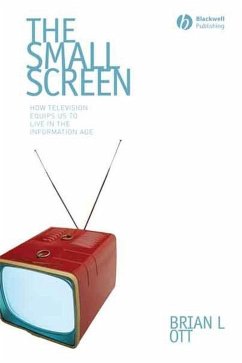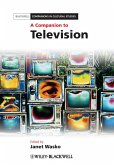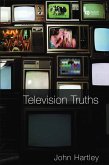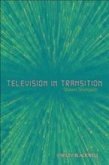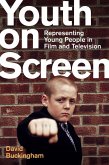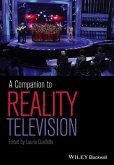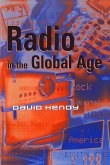Television is one of the most important socializing forces in contemporary culture. This book is a cultural history of prime-time television in America during the 1990s.
- Examines changes that took place in programming, such as the rapid adoption of cable, the proliferation of content providers, the development of niche marketing, the introduction of high-definition television, the blurring of traditional genres, and the creation of new formats like reality-based programming
- Argues that television programmes of the 1990s afforded viewers a symbolic resource for negotiating the psychological challenges associated with the shift from the Industrial Age to the Information Age
- Explores the ways in which television provided viewers with tools for coming to terms with their fears about living in the fast-paced , increasingly diverse, information-laden society of the 90s
Dieser Download kann aus rechtlichen Gründen nur mit Rechnungsadresse in D ausgeliefert werden.
"In The Small Screen, Brian L. Ott explores how UStelevision of the 1990s met the Information Age. With theoreticalclarity and acute critical analysis of content and form in thetelevision experience, Ott illustrates how some Americans embracedthe future through hyperconscious television while otherscelebrated the past through nostalgia. A breakthrough study."
Thomas W. Benson, Pennsylvania StateUniversity
"Brian L. Ott's book is accessible to students andvaluable for professional scholars. It integrates a wide range ofcontemporary scholarship at a high level of sophistication withoutever falling into jargon or postmodern dogma. This volume will becutting edge in the rhetorical study of television."
Barry Brummett, University of Texas-Austin
"...ultimately what is pleasing about Ott's book is itswillingness to take television seriously..."
M/C Reviews
"Ott...hints at the coming identity crisis as theconnected age replaces the information age. Summing Up:Recommended."
Choice
"Ott's distinctions between hyperconscious andnostalgic programming serve as fine distinctions for consideringthe cultural significance of television."
PsycCritiques
Thomas W. Benson, Pennsylvania StateUniversity
"Brian L. Ott's book is accessible to students andvaluable for professional scholars. It integrates a wide range ofcontemporary scholarship at a high level of sophistication withoutever falling into jargon or postmodern dogma. This volume will becutting edge in the rhetorical study of television."
Barry Brummett, University of Texas-Austin
"...ultimately what is pleasing about Ott's book is itswillingness to take television seriously..."
M/C Reviews
"Ott...hints at the coming identity crisis as theconnected age replaces the information age. Summing Up:Recommended."
Choice
"Ott's distinctions between hyperconscious andnostalgic programming serve as fine distinctions for consideringthe cultural significance of television."
PsycCritiques

